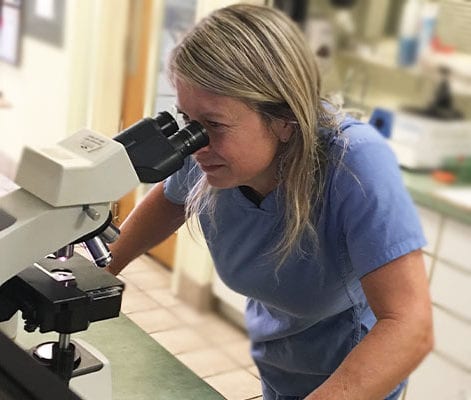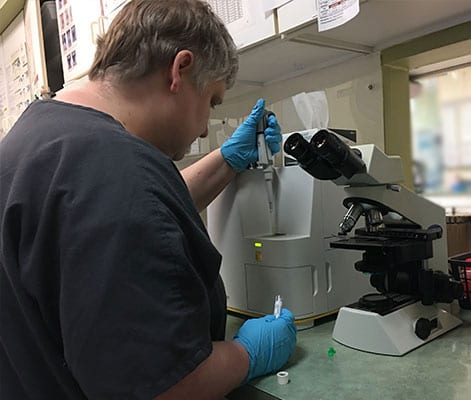Comprehensive Pet Diagnostics in Raleigh, NC
Pet diagnostics consist of comprehensive lab work, digital radiology, and ultrasound. We use these in combination to fully understand your pet and their condition. The better information we can glean from these technologies, the more effectively we can treat your pet. Typically, diagnostics come into play routinely for well pets, as in routine blood work to screen for underlying diseases, as well as in response to your pet feeling unwell. A physical exam is not always enough to diagnose a condition, but diagnostics help us fill in the blanks and pinpoint the exact reason for your ailing pet.


Digital Radiology
Our pet diagnostics feature both a full body X-ray and dental X-rays. Digital X-rays give us a clearer image and faster results than a traditional film X-ray. They also emit substantially less radiation, so they are safer for your pet, too. We use X-rays for a number of reasons including:
- Fractures or breaks
- Foreign body ingestion
- Dental disease
- Diseased organs
- Hip dysplasia detection in puppies as early as 16 weeks old with a PennHIP X-ray
Laboratory Work
Lab work is essential in pet diagnostics as it focuses on your pet’s biology: their blood composition, skin cells, fecal matter, and urine. Understanding their normal composition greatly informs our understanding of any changes that could indicate disease. We have the capability to run most tests right here in-house and get results in mere minutes. However, sometimes it is beneficial to send a sample to an outside lab. While we do work with some labs in and around Raleigh, we also have a unique partnership with leading labs across the nation. Common labs we run include:
- Complete blood counts (CBCs)
- Blood chemistry panels
- Urinalysis
- Fecal exams
- Skin scrapings and cytology
- Thyroid tests (especially important for cats)
- And more
Ultrasound & Echocardiograms
Ultrasound uses ultrasonic sound waves to create a live image of your pet’s internal structures. An echocardiogram refers to an ultrasound that is done on the heart. We utilize both a board-certified ultrasonographer for our ultrasounds and a board-certified cardiologist for echocardiograms. Ultrasound helps us see organs at work, so we can monitor their function and detect any abnormalities. It is also highly useful in examining the abdominal cavity. Ultrasound is useful for:
- Organ function
- Foreign body ingestion
- Gastrointestinal problems
- Bladder or kidney stones
- Heart disease
- And more
Interested in taking advantage of our extensive pet diagnostics? Contact us today to set up an appointment!

